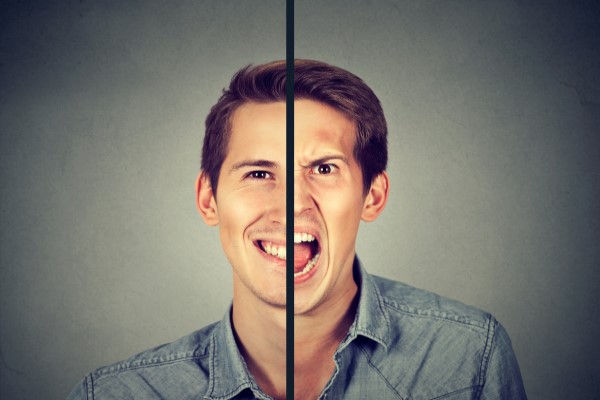What Are the Symptoms of a Mood Disorder?

The phrase “mood disorder” is used to classify depressive and bipolar disorders. While symptoms can overlap between the disorders, each has its own unique set.
Types of mood disorders
Learn about the symptoms of each disorder, and if you suffer from any, you should seek the help of a therapist or psychiatrist to know your treatment options.
Major depression
Everyone feels sad from time to time, and those feelings usually go away. Depression, however, is more than just sad feelings. Those who experience depression for two weeks or longer are diagnosed with major depression.
Major depression has a variety of symptoms. People often feel hopeless and lose interest in their favorite activities.
Other symptoms include:
- Irritability
- Insomnia
- Sleeping too much
- Fatigue
- Slowed thinking
- Slowed movements
- Guilt
- Difficulty concentrating
- Thoughts of death
- Aches and pains not explained by a physical condition
- Lack of appetite
- Overeating
Dysthymia
A persistent depressive disorder is often referred to as dysthymia. This condition is diagnosed after someone has suffered from low-grade depression or irritability for two years or longer.
The symptoms come and go with this disorder, so people might feel fine one day but have symptoms the next. It is rare to go for longer than two months without experiencing symptoms.
The intensity of the symptoms changes as well. While the symptoms are often not as intense as with major depression, people can experience many of the same ones.
Bipolar disorder
People who suffer from bipolar disorder alternate between depression and mania. In some cases, people experience several of these mood changes a year.
The depression symptoms are the same as with major depression. An abnormally upbeat shift in personality defines manic episodes. People might increase their activity levels and feel more confident than normal. Unusual talkativeness, racing thoughts and distractibility are also symptoms. In addition, people tend to make poor decisions while in a manic state.
Substance-induced mood disorder
A substance-induced mood disorder is diagnosed when a substance causes depression or mania. This disorder can be caused by actively taking drugs or alcohol, or it can occur when the person stops taking drugs and alcohol.
The symptoms are the same as someone suffering from a major depressive disorder or mania. People often suffer from symptoms for days or even several weeks.
Those who already had symptoms prior to abusing substances are not diagnosed with a substance-induced mood disorder. Instead, they already had the disorder, and the drugs or alcohol made it worse.
Getting help for a mood disorder
Living with a mood disorder can be frightening. You never know when the next crash could come, so you find yourself worried about making plans too far in advance. Then, when the symptoms appear, you feel like you are no longer in control. Fortunately, there is help available. Reach out to a therapist or a psychiatrist if you have major depression, dysthymia, bipolar disorder or substance-induced mood disorder.
Request an appointment here: https://mb.futurepsychsolutions.com or call Future Psych Ketamine Clinics at (843) 788-9718 for an appointment in our Myrtle Beach office.
Check out what others are saying about our services on Yelp: Read our Yelp reviews.
Recent Posts
Finding the right psychiatrist to help manage attention-deficit/hyperactivity disorder (ADHD) is an important decision. They need to understand the complexities of ADHD and provide you with a specialized treatment plan tailored to your specific needs. Effective psychiatric treatment for ADHD is essential to managing your symptoms and allowing you to live a fulfilling and productive…
ADHD treatment from a psychiatrist helps children and adults lead happy and productive lives by helping them manage their symptoms. Attention deficit hyperactivity disorder, or ADHD, is a neurodevelopmental disorder characterized by inattention, impulsiveness, and hyperactivity. Untreated, ADHD symptoms can disrupt the day–to–day life of those who suffer from it. The key to successful treatment…
Major depressive disorder treatment plans offer a structured and innovative approach to alleviating the burdens of depression. As mental health care evolves, new methods have gained recognition for their effectiveness in treating symptoms of this mental health condition. Knowing what to expect from these treatment plans can help create realistic expectations and improve your overall…
Attention-deficit/hyperactivity disorder (ADHD) is a neurodevelopmental disorder that affects millions of people worldwide. Common symptoms of ADHD include the inability to pay attention, acting impulsively, and having uncontrollable energy. ADHD significantly impacts how a person goes about their daily life. Fortunately, many treatment options are available to manage ADHD symptoms and improve overall functioning.Prescription medication…


